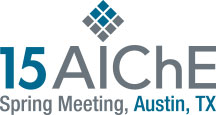

Fuel cell vehicles (FCVs) have been developed for years to cut dependence on fossil fuel and significantly reduce carbon dioxide emissions toward a sustainable society. In the near feature, it is important to promptly establish hydrogen infrastructures for commercialization of FCVs. One of the major problems in the hydrogen infrastructures is to put in place and spread hydrogen fueling stations throughout society. Although a few hydrogen fueling stations have been commercialized in Japan, a gasoline and hydrogen supply system in a fueling station would be needed in the future because of effective land utilization in urban areas. Furthermore, it is essential to address safety issues of hydrogen fueling stations to ensure safety of workers, customer and the public for stable supply of hydrogen to FCVs. Hydrogen has hazards such as embrittlement and detonation. To control hydrogen hazards leads to prevent accidents involving hydrogen. Risk assessment is a useful tool to identify hazards and prevent and mitigate accidental risks. For incorporating valid safety measures into a hydrogen fueling station, risk assessment have already been implemented into stand-alone compressed and liquid hydrogen stations, although new technologies involving hydrogen have lack of information and uncertainties on hazards, scenarios and risks. However, a gas station with a liquid hydrogen fueling system has not investigated with risk assessment yet. Therefore, the purpose of this study is to propose effective safety measures for a gas station with a liquid hydrogen fueling system by risk assessment.
The first step in risk assessment was to define a model of the station on the basis of Japanese regulations, demand estimates and restrictions of land utilization. Hazard Identification was the significant second step in risk assessment. Although there are some methods of Hazard Identification such as Hazard and operability study (HAZOP) and Failure mode and effect analysis (FMEA), Hazard identification study (HAZID) was carried out in this study, which is a qualitative method but can bring out many undesirable events from a comprehensive point of view to identify hazards and accidental scenarios causing leak, fire and explosion involving hydrogen. HAZID was exercised by an expert team to imagine and bring every hazards and accidental scenarios to table during brainstorming session. For better objectivity and logicality, guidewords were prepared for example: earthquake, tsunami, plane crash, chemical hazard and process condition, and the station was divided into several sections such as a liquid hydrogen pipeline, a large amount of liquid hydrogen storage and a compressed gaseous hydrogen pipeline. Based on the guidewords, connections between cause and effect were investigated on each section. The third step in this study was to rank accidental risks in light of consequence and likelihood, and the risks were summarized as unacceptable, acceptable and negligible risk in risk matrix for visualization of the risks. After that, the last step was to find out safety critical elements for reduction the risks. It was identified that how much risks can be reduced by safety measures. Furthermore, two risk matrixes before and after implementing safety measures into processes were compared to reveal effective and critical safety measures in the sections. Eventually, safety critical elements in the station were identified for controlling accidental risks.
